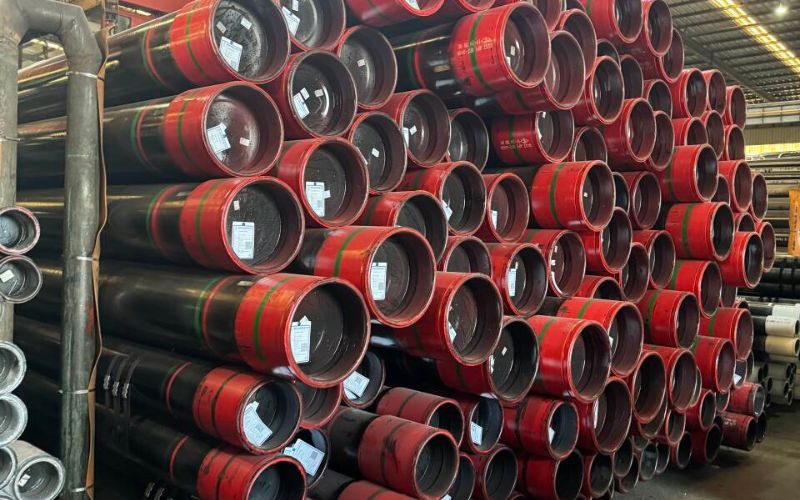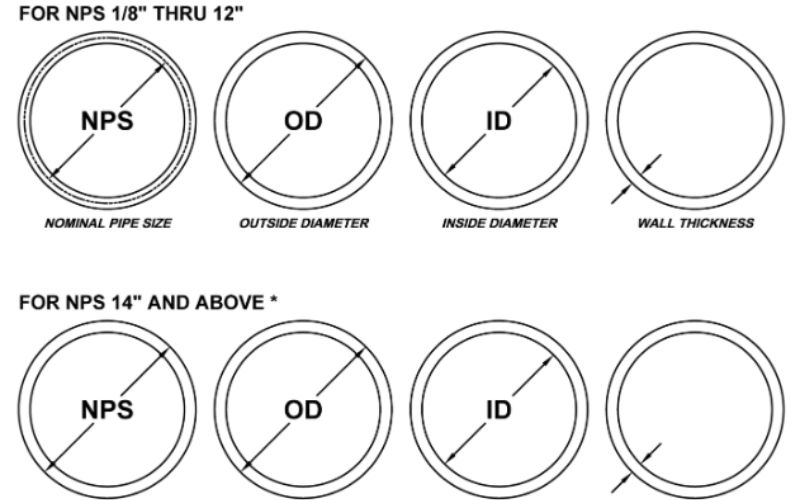Top 15 Best Mild Steel Pipe Manufacturers to Know in 2025 (Updated List)
The mild steel pipe industry is crucial in the global market, as the materials it produces find applications in various other sectors. This article lists the top 15 manufacturers renowned for producing high-quality carbon steel pipes. These companies have highly reputable product portfolios comprising seamless, structural, and welded steel pipes for various industries. Through these top manufacturers, we aim to provide insights into their strengths, product diversity, and unique offerings that distinguish them in a competitive environment. We do not merely list them but offer a broader understanding of the trends in this market, and assist buyers in identifying reliable carbon steel pipe suppliers.
Some aspects covered include:
- ✓ Insights into the leading manufacturers’ strengths
- ✓ Understanding product diversity and unique offerings
Overview of the Mild Steel Pipe Industry
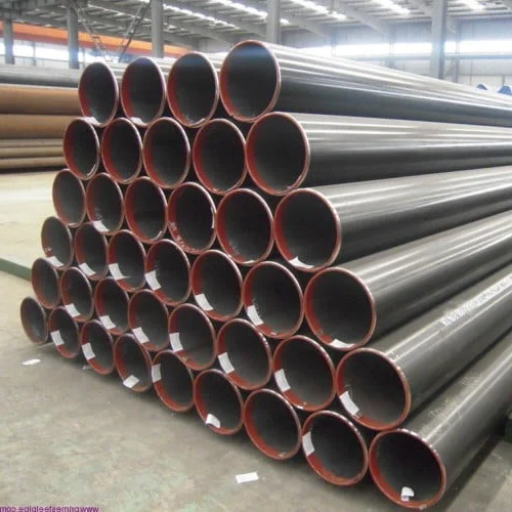
If there is an industry that serves as the foundation for several existing and emerging industries, it would be the mild steel pipe industry. It is an indispensable material for the construction industry, infrastructure development, energy processing, and many other applications. They are rugged pipes that are relatively cheaper than other types, which can compete with them in terms of applications; thus, they are often the preferred type of pipe for “in/tube” producers or, in other cases, mild steel pipe manufacturers. Such products are numerous in nature, including but not limited to various types, such as seamless carbon steel welded tubes, which are designed to meet specific industrial functional needs. These allow the employment of any kind of pipe, ranging from structural to mechanical, with pertinent handiwork’s diameter and thickness. The need for high-standard, corrosion-proof products drives the expansion of the sector.
Importance of Mild Steel Pipes
Many industries rely on mild steel pipes because of their unique mechanical properties and high flexibility. Some of the most vital utilities of these pipes include:
- Installation of pipelines, structural supports and manufacturing of several tillage implements
- They can tolerate high-pressure levels and adverse environments without suffering any damage ensuring that most fluids and gases are transported safely.
Mild steel pipes are further appreciated due to their ease of fabrication and welding, which enables them to be used in a wide range of projects. For this reason, they remain the number one choice for manufacturers and suppliers in cases where high-performance, specialized materials are required and compliance with strict industry regulations and standards is necessary.
Applications of Carbon Steel Pipes
Construction, automotive, and oil and gas industries are just a fraction of the sectors that rely on carbon steel pipes. Carbon steel pipes have a myriad of applications, from line pipes in refineries to large-scale construction, as they serve as structural adjustments. The multiple applications of carbon steel pipes are due to their ability to be made in instances where a preference for high strength and toughness is required, such as in construction machinery and equipment. The types of seamless and welded pipes offer more design and application options, providing precise levels of structural support and pressure containment, respectively. Manufacturers and suppliers of carbon steel pipes can produce a range of sizes and grades to meet the varied needs of industries, ensuring that every requirement is delivered with precision and to the highest standards.
Current Market Trends
Taking a cue from the current market scenario, mild steel pipe manufacturers, for instance, need eco-friendly options that are also resistant to corrosion, which is on the rise. Technological innovations have allowed for the creation of pipes that possess seemingly impossible capabilities, for instanc,e pipes that are built with walls that are several times thicker than acceptable structural limits and have virtually no defects at the joint lines. Additionally, producers are increasingly opting to use alloy steel and stainless steel pipes for a wide range of industrial applications. Furthermore, the industry is primarily focused on increasing its stock and expanding its product range to include various, customer-friendly sizes and configurations of pipes. It changes the approach of buyers towards manufacturers, binding them to third-party approvals and strict compliance with ASTM A53, A106, and other International standards.
Top 15 Manufacturers of Mild Steel Pipes
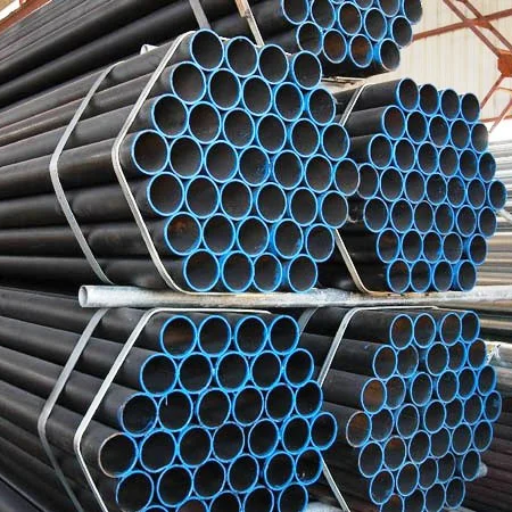
Detailed Company Profiles
1. Baling Steel
Year Founded: 1998
Introduction: A leading steel supplier in China, specializing in carbon steel, stainless steel, and mild steel pipes.
Main Products: Carbon steel pipes, stainless steel pipes, oil well tubing, pipeline pipes, gas cylinder pipes, and boiler pipes.
Key Advantages:
- Comprehensive certification system (CE, EN, API, GB, GOST)
- Wide application in industries like construction, petroleum, and natural gas
- Strong global logistics and customer support
- Website: Baling Steel
Key Disadvantages:
- Limited information on specific customization capabilities
2. Baosteel
Year Founded: 1978
Introduction: A professional manufacturer of carbon and mild steel pipes, tubing, and fittings.
Main Products: Steel pipes, tubing & casing, and pipe fittings.
Key Advantages:
- Strong focus on quality and reliability
- Products widely used in oil & gas, power energy, and water supply projects
- Website: Baosteel
Key Disadvantages:
- Limited details on global logistics and delivery timelines
3. Bri-Steel Manufacturing
Year Founded: 2011
Introduction: Specializes in seamless steel pipes using Thermal Pipe Expansion (TPE) technology.
Main Products: Seamless and welded steel pipes.
Key Advantages:
- Advanced TPE process for precision and durability
- Small minimum order quantities and custom manufacturing
- Website: Bri-Steel
Key Disadvantages:
- Higher costs for seamless pipes compared to welded alternatives
4. Baolai Steel Group
Year Founded: 1991
Introduction: A prominent manufacturer of seamless and welded steel pipes, with a focus on fire protection systems.
Main Products: Seamless carbon steel pipes, alloy steel pipes, and galvanized pipes.
Key Advantages:
- Strong customization capabilities
- Competitive pricing and sustainable practices
- Website: Baolai Steel
Key Disadvantages:
- Limited focus on high-performance applications
5. Nucor Corporation
Year Founded: 1940
Introduction: The largest steel producer in the U.S., offering a wide range of steel products.
Main Products: Carbon steel pipes, structural pipes, and galvanized pipes.
Key Advantages:
- Sustainable production practices
- Strong reputation for quality
- Website: Nucor
Key Disadvantages:
- Primarily focused on the U.S. market
6. United States Steel Corporation (U.S. Steel)
Year Founded: 1901
Introduction: A historic leader in steel manufacturing in the U.S.
Main Products: Seamless and welded pipes, API-certified pipes.
Key Advantages:
- Strong compliance with safety standards
- Focus on the energy sector
- Website: U.S. Steel
Key Disadvantages:
- Limited product range for non-energy sectors
7. ArcelorMittal USA
Year Founded: 2006 (as part of the global ArcelorMittal group)
Introduction: A global leader in steel production with a focus on innovation.
Main Products: Large-diameter pipes, seamless pipes, and high-strength steel pipes.
Key Advantages:
- Cutting-edge technologies
- Strong focus on sustainability
- Website: ArcelorMittal
Key Disadvantages:
- Higher costs for premium products
8. Tenaris
Year Founded: 2002
Introduction: A global supplier of steel pipes, particularly for the energy sector.
Main Products: High-strength, corrosion-resistant, and seamless pipes.
Key Advantages:
- Strong focus on oil and gas pipelines
- High-quality, durable products
- Website: Tenaris
Key Disadvantages:
- Limited product range for non-energy applications
9. American Cast Iron Pipe Company (ACIPCO)
Year Founded: 1905
Introduction: Known for ductile iron and spiral-welded steel pipes.
Main Products: Ductile iron pipes, steel pipes, and water distribution pipes.
Key Advantages:
- Ideal for municipal water systems
- Long-standing reputation
- Website: ACIPCO
Key Disadvantages:
- Limited focus on industrial applications
10. Mueller Industries
Year Founded: 1917
Introduction: A trusted supplier of steel pipes for HVAC and plumbing systems.
Main Products: Steel pipes for industrial and residential use.
Key Advantages:
- Wide range of applications
- Strong focus on customer service
- Website: Mueller Industries
Key Disadvantages:
- Limited focus on large-scale industrial projects
11. PTC Alliance
Year Founded: 1924
Introduction: Specializes in mechanical steel tubes and custom solutions for welded and drawn-over-mandrel (DOM) pipes.
Main Products: ERW steel pipes, DOM mechanical tubes, and specialized steel products.
Key Advantages:
- Expertise in automotive and industrial applications
- High-quality mechanical tubing
- Website: PTC Alliance
Key Disadvantages:
- Limited focus on large-diameter pipes
12. Vallourec
Year Founded: 1899
Introduction: A global leader in premium tubular solutions, with a strong presence in energy and industrial sectors.
Main Products: Premium seamless pipes, high-strength tubular products.
Key Advantages:
- High-quality products for critical applications
- Strong focus on oil, gas, and petrochemical industries
- Website: Vallourec
Key Disadvantages:
- Higher costs for premium-grade pipes
13. Jindal Saw Ltd.
Year Founded: 1984
Introduction: A leading Indian manufacturer with a strong global presence, offering a variety of steel pipes.
Main Products: Carbon steel pipes, seamless pipes, and specialty tubes.
Key Advantages:
- Wide product range for diverse industries
- Strong focus on quality and innovation
- Website: Jindal Saw
Key Disadvantages:
- Limited focus on small-scale projects
14. Sumitomo Metals
Year Founded: 1897
Introduction: A Japanese leader in steel manufacturing, specializing in pipes for the oil and gas industry.
Main Products: Oil and gas pipes, corrosion-resistant pipes, and alloy steel pipes.
Key Advantages:
- High-quality, durable products
- Strong focus on energy infrastructure
- Website: Sumitomo Metals
Key Disadvantages:
- Limited customization options for non-energy sectors
15. Severstal
Year Founded: 1955
Introduction: A Russian steel giant known for its durable and high-performance steel pipes.
Main Products: Seamless pipes, welded pipes, and API-certified pipes.
Key Advantages:
- Strong reputation for quality and reliability
- Focus on heavy industries and energy projects
- Website: Severstal
Key Disadvantages:
- Limited presence outside of Europe and Asia
Criteria for Selecting Reliable Pipe Suppliers
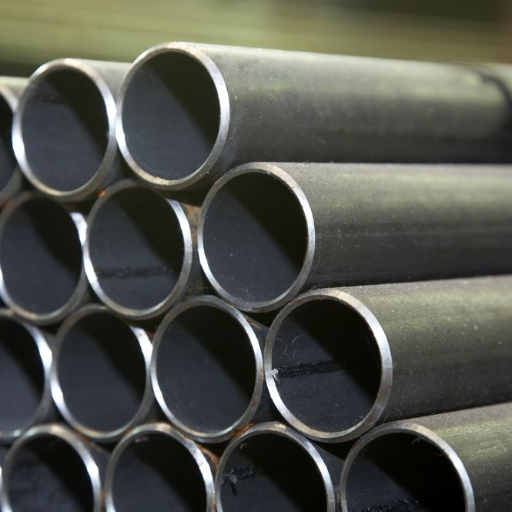
Evaluating Quality Products
In search of a dependable pipe distributor, there must be a selective judgment on the quality of their products. In the steel pipe, quality can be manifested in a number of aspects, one of which is the compliance with international standards and/or specifications, such as ASTM standards like A53/A106. Such standards ensure that the carbon steel pipes meet the specified material composition, wall thickness, and mechanical properties. Quality products are also easily identifiable from their longevity and resistance to rust, and this is indispensable in ensuring structural soundness, especially in industrial applications. A good pipe supplier in this case will also have a well-elaborated range of seamless and welded steel pipes where clients can select sizes and grades catered to their respective needs. This variety of products guarantees the effectiveness of the pipes as well as the service life under extreme conditions.
Importance of Inventory and Stock Levels
One of the most significant elements to consider when choosing a reliable Mild Steel Pipe manufacturer or supplier is their capacity to deliver. Such suppliers have a highly efficient supply/software system, which ensures the easy delivery of orders for project scheduling, eliminating any potential delays. A supplier equipped with sufficient stock can supply various pipe sizes and grades, along with the required fittings and accessories, such as flanges or tubing, to meet specific needs. This becomes more relevant for those areas where time frames are tight and adjustments in specification designs are necessary. Furthermore, the said sellers, who never run out of stock, have the capability, let’s say, to respond to the expansion and contraction of the market beyond the limits of supply reliability. These types of firms abound as they work with independent companies and vendors to ensure that they achieve all the set objectives regarding the needs of different sectors, thereby promoting these firms as suitable partners in the steel industry.
Understanding Pipe Sizes and Dimensions
It is essential to know the pipe size and dimensions before attempting to order anything. There is a wide range of pipes designed for various industries, from oil refineries to the construction of high-rise buildings. This requires some parameters to be standardized; among others, these include the order of sizes, such as the external diameter, the thickness of the pipe, and the length. The most reliable manufacturers will explain these factors to their customers, enabling them to select the most appropriate pipe. Also, the use of seamless pipes or those with seams usually depends on the purpose. If the purpose involves using pipes in a presser, seamless ones are selected because of their even shape. It requires knowing and understanding the details so that the pipes used in construction work not only meet the design criteria but also fit the end-use purpose.
Conclusion
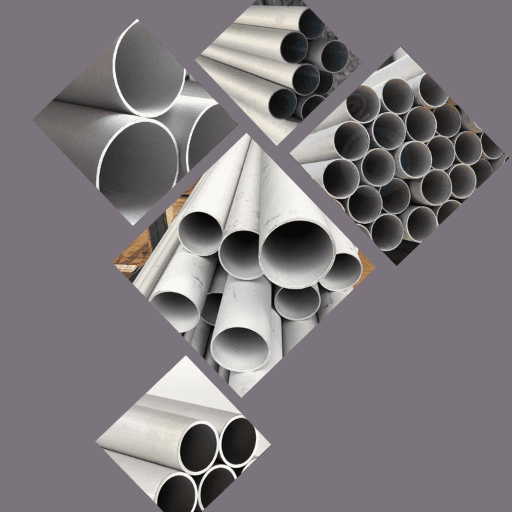
Summary of Key Players
The top fifteen Mild Steel Pipe manufacturers have placed themselves as key actors within the global steel industry. Such companies are known for having strong capacities for producing various products, including seamless and structural quality carbon steel pipes, which are helpful in multiple sectors. Such companies maintain extensive inventories and offer a variety of sizes and grades in this market, catering to the requirements of a broad range of segments, including construction and energy processing. These manufacturers’ firm relationships with distributors and third-party suppliers enhance their ability to supply products within the required timeframe and in a cost-efficient manner, making them top suppliers in the domain.
Final Thoughts on Choosing the Right Supplier
When selecting a steel pipe supplier, buyers should consider a list of key criteria. Here are some pertinent criteria for consideration as a buyer:
One can opt for suppliers whose customers are assured of purchasing products manufactured to the standards laid down in respective fields, such as ASTM A53 and A106.
Include the supplier’s ability to manage stocks effectively, as this complements the supplier’s production. A sufficiently supplied supplier may offer items such as seamless pipe and welded carbon steel pipe in ample quantities at the opportune time.
Moreover, it is also essential to appreciate the differences in the overall characteristics of pipes, such as their dimensions and whether there is a need to consider the availability of seamless or welded pipes, to ensure that the chosen products will enable optimal application in a particular project.
Future Outlook for the Mild Steel Pipe Market
Conclusions drawn from my research suggest a gradual development of the mild steel pipe industry, driven by technological advancements and an increasing demand for eco-friendly and non-rust products. The development of new types of steel pipes geared towards enhancing corrosion resistance, the durability of the piping material and other value-added instructive features is equally bound to take place in the entire piping industry seeking to develop. Furthermore, it is encouraging that more industries are beginning to find use cases for composite steel components that comprise both alloy and stainless steel, in addition to plain carbon steel. In several instances, construction projects have been or are planned to be undertaken on a global scale, thus high demand for carbon pipe installations and consequently for carbon steel pipe suppliers of high quality is to be expected as these resources are so vital for the industrial growth anywhere on the globe.



